Should I hire a professional biographer?
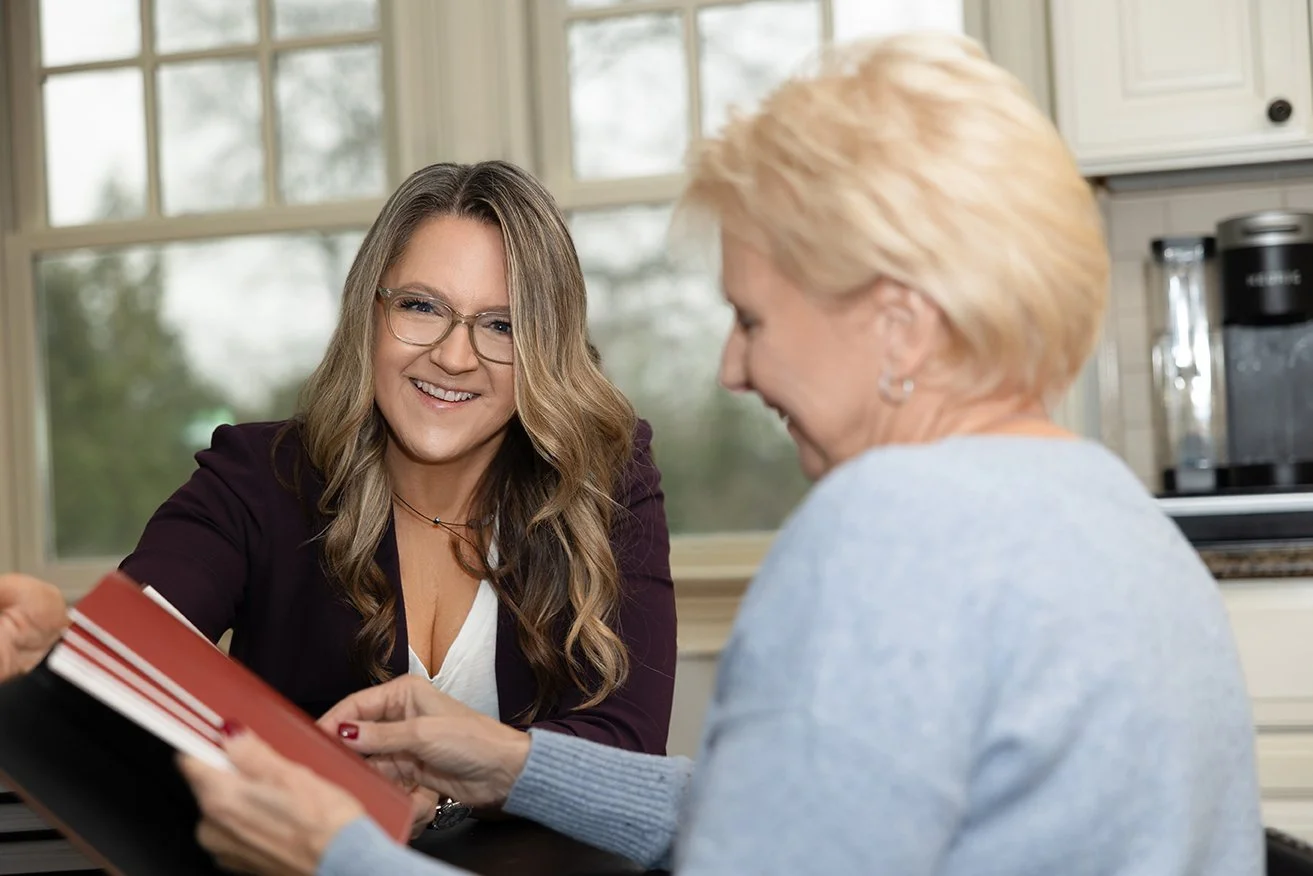
Professional biographer, personal historian, memoir coach—Dawn Roode, pictured with a client, is all those things.
Depending on the day, and my mood, and whom I am speaking with, I may call myself a personal historian, a professional biographer, or a memoir coach; because the legacy preservation work that I do is 100-percent customized to each specific client—and, maybe even more so, because most people have never heard of ‘my job’—I opt for clarity over consistency. Other people who do similar work may call themselves ghostwriters, or family historians, or life story facilitators, even practitioners of guided autobiography.
At the end of the day, though, we are professionals who help everyday people capture their life stories—in my case, in books.
Should you consider hiring…well, for simplicity’s sake, let’s just say a ‘professional biographer’?
I’m biased, of course—I believe that working with a professional biographer can be one of the most meaningful investments you’ll ever make. So, my answer is “yes.” Here are a few reasons why:
1. We know how to bring out the best in your story.
Many people assume they need a dramatic, bestselling-worthy life to justify documenting their story. The truth is, every life is extraordinary in its own way—it just takes the right approach to uncover the details that make it shine.
A professional biographer is skilled in:
✔ Asking the right questions to help you recall meaningful moments.
✔ Finding themes and connections you might not see in your own experiences.
✔ Bringing your voice to life in a way that feels authentic and natural.
Example: Have you ever tried to tell a story but felt like you were rambling? A biographer helps organize your thoughts, ensuring your memories are preserved with clarity and depth.
2. The process is easier (and more enjoyable) than you think.
Many people put off documenting their life because they think it will be too time-consuming or difficult. But hiring a biographer makes the process simple and even enjoyable—it’s just like having a relaxed conversation, with someone else doing the heavy lifting of recording, organizing, and shaping the story.
✔ No writing required—just share your memories in a comfortable, guided interview.
✔ You set the pace—whether you want to do a few short sessions or take your time reviewing your life experiences over the course of a year.
✔ It’s a conversation, not an interrogation—biographers create a safe space for you to open up and share.
Think of it this way: If you’ve ever enjoyed telling stories to friends or family, you’re already doing it! A biographer simply captures those stories and turns them into something lasting.
3. Your story deserves more than just a few scattered notes.
If you’ve ever tried to jot down memories on your own in a journal, scrapbook, or other memory-keeping tool, you might have found yourself starting and stopping, unsure where to go next. A professional biographer helps weave everything together into a clear, beautiful narrative.
✔ We create structure—so your story has a natural flow and impact.
✔ We capture your unique voice—so it truly sounds like you.
✔ We ensure accuracy—so the details of your legacy are preserved with care.
Consider: Leaving behind a device overflowing with digital clutter and haphazard notes, letters, and journals for your offspring forces them to sift through the clues of your life; a professional biographer helps you curate the stuff of your life so your loved ones don’t have to do it later.
4. Your legacy matters—now and for future generations.
One of the greatest gifts you can give your family is a well-preserved, well-told story of your life. Whether it’s a bound book, an audio recording, or a digital archive, working with a biographer ensures that your memories don’t fade over time.
✔ Your children, grandchildren, and beyond will know your voice, your experiences, your wisdom.
✔ Your history won’t be lost—your struggles, triumphs, and lessons will live on.
✔ It’s not just about the past—it’s about shaping how you want to be remembered, and offering up your hard-won lessons to your descendants.
Imagine this: Decades from now, a great-grandchild you’ve never met picks up your story and feels connected to you in a way they never could have otherwise. (Wouldn’t you have cherished such a gift from your own parents or grandparents?) Even better—what if they are able to learn from one of your stories? This is such a biggie, but I’ll leave you with one word: IMPACT ❤️
Hiring a skilled personal historian or biographer isn’t about handing over your story to someone else; it’s about having an experienced guide who knows how to ask the right questions, shape a compelling narrative, and preserve your legacy in a way that resonates for generations to come.
My biased opinion: Working with a professional biographer can be one of the most meaningful investments you’ll ever make. Here are a few reasons why.
Are you nervous about undertaking a life story project? Working with a personal historian or memoir coach can help alleviate many of the most common fears.
“I wish I knew why Mom moved to New York when she was just 16.” “I wish Papa told me how he makes his Sunday sauce.” Don’t wish for stories; ask for them.
Walking down memory lane can be fun, but writing about your life has big benefits beyond that, including making meaning out of your lived experience.
It’s important to me to stress some sense of urgency about writing about your life—but I don’t think you’ll have regrets if you don’t write about it ALL.
Boxes of old letters, family photos, and mementos from a generation ago can feel like a burden if they’re passed down without context. What to do with them.
You may think you are writing about your life for your family—to honor your ancestors, to give a gift to your descendants. But the truth is deeper. You’ll see.
When Mother’s Day is hard due to feelings of loss, allowing ourselves to linger in our memories may help (and, yes, hurt). A tribute made in grief, and love.
After we record your personal history interviews, I craft your story and photos into an heirloom coffee table book—not a video, not an audio file. Here’s why.
If writing your memoir means enough to you to put it on a bucket list, please read this—I’ll help you easily move it from future project to present-day endeavor.
Your legacy is more than the assets you leave behind—much more. Here, three ways to leave a personal legacy that has a positive impact on your loved ones.
Ignore those naysayers who warn that you must be passed middle age to begin writing your life stories: Start your memoir now, no matter how old you are.
It’s a common but wrong assumption—that telling one's own stories is “narcissistic” or “self-centered.” Truly, preserving your legacy is an act of generosity.
Recording loved ones' stories is important to most Americans, and yet not even half of us have done so. Here, resources to make memory-keeping easier.
Our memories are anything but fixed—and when stories are passed down to a new generation, their malleability, their meaning, and their impact change, too.
Family stories have enduring value. Some you share now may not be relevant enough for your kids to care. But one day they will see themselves in your stories.
Ever wonder what it might be like to work together on your OWN heirloom book project? Listen to past clients' feedback—and words of thanks!—to get inspired.
Writing about your life can be hard—but it’s still worth the effort. (Oh, and you’re wrong that your family members don’t care about your personal history).
Understanding the basics of how our brains encode memory can help us both remember the things we want in the future & retrieve precious memories from our past.
Dear Tim Ferriss: Have you interviewed your parents yet? It is with a healthy dose of humility & a shot-in-the-dark effort that I say to you: Do it now—please.
Is your life too boring to tell people about? Do you think it's self-centered to write a memoir? Or that your kids don't care about your stories? Think again.
It seems obvious: We should ask our parents about their lives—lessons, loves, adventures, ancestors. Then why do so many of us wait too long and then have regrets?
Did you know that listening to and sharing stories can help us live longer, happier lives? Discover three impactful ways to bring storytelling into your life.
I hope you'll take comfort in these personal stories of vulnerability and loss during the holidays. (Sharing memories about loved ones is always a good thing.)
Preserve your parents’ (and grandparents’) stories meaningfully for the next generation with these three ideas that make the process simple and enjoyable.
Sometimes the idea of telling our "life story" is overwhelming. If we think of memoir as a series of smaller life narratives, though, the way in becomes clear.
The Wall Street Journal reports that a growing number of adult children are interested in hearing more of their parents' stories. Are you among them?
A brave group of Jews secretly chronicled their daily existence in the Warsaw Ghetto during the Holocaust. Only one who knew where the archive was buried survived.
Ever tried to talk about your childhood with your grown kids only to be met with a lack of interest? They might not care now, but they will one day—I promise.
What better way to scope out if a personal historian is a good fit for you than to hear about others’ experiences, in their own words? I am humbled and proud.
Ever wonder what it might be like to work together on your OWN heirloom book project? Listen to past clients' feedback—and words of thanks!—to get inspired.

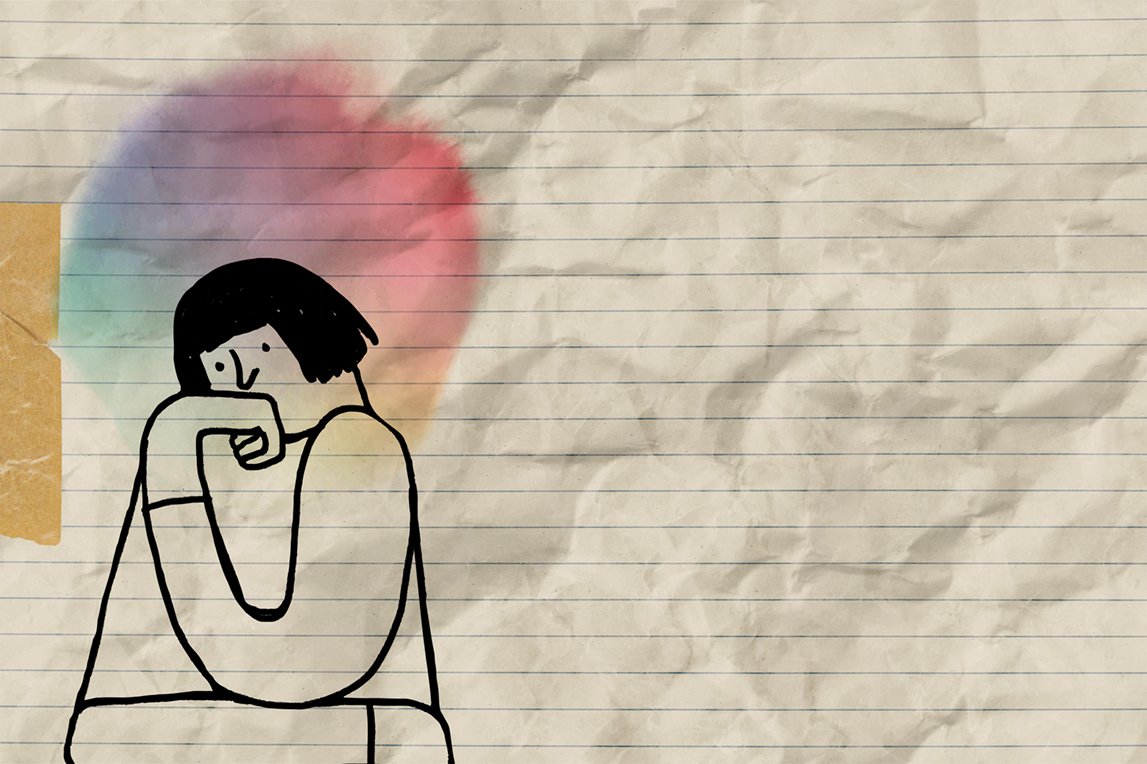






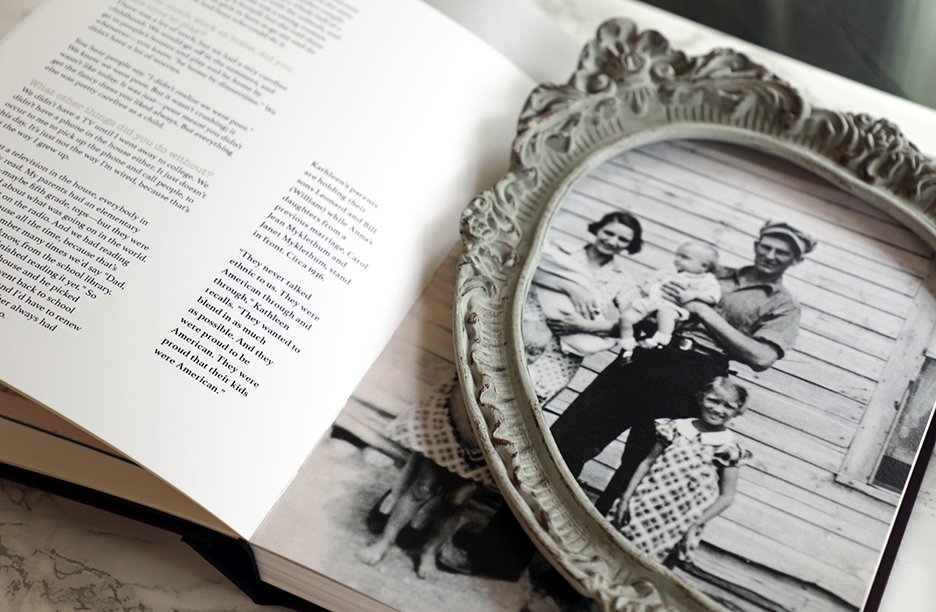




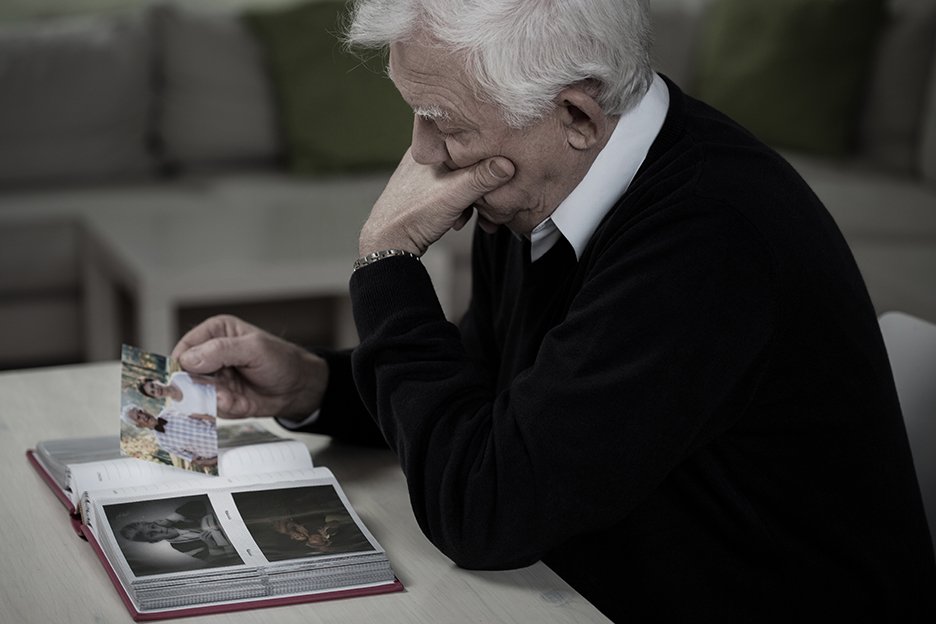
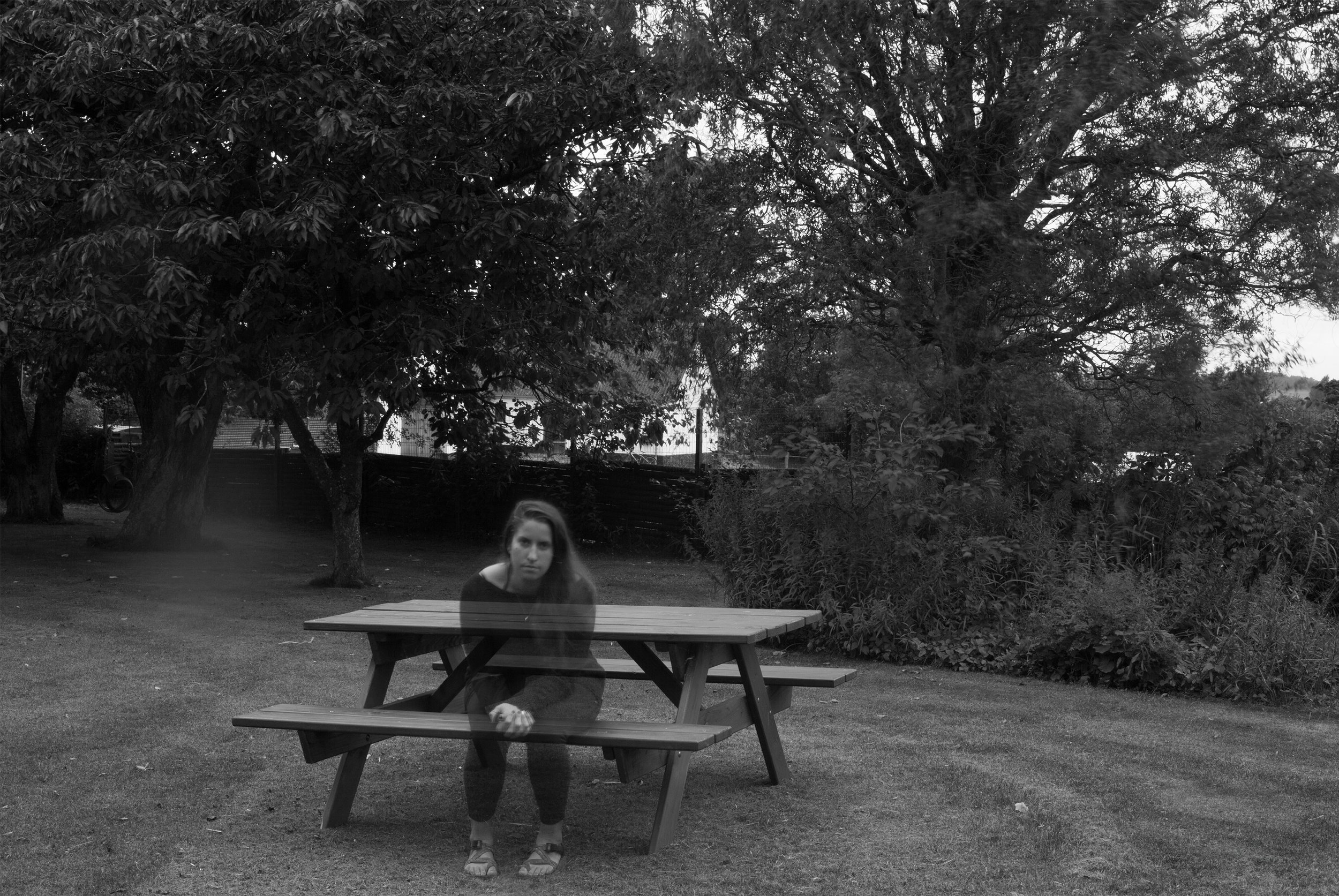




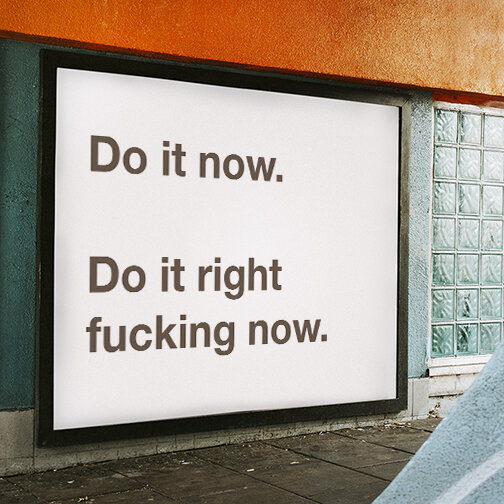








The three most common excuses I hear for not writing about your life “yet,” and how—and why—to overcome them. It’s not too soon for your memoir, I promise.